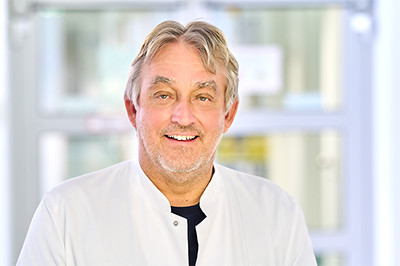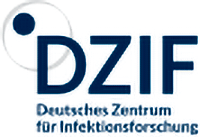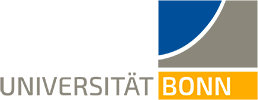
Prof. Dr. med. Achim Hörauf
Director, Institute of Medical Microbiology, Immunology and Parasitology (IMMIP)
Photo © Uni Bonn /Volker Lannert
Prof Achim Hörauf is the Director of the Institute of Medical Microbiology, Immunology and Parasitology (IMMIP) at the University Hospital Bonn and Professor of Parasitology at the University of Bonn. He is a leading expert in neglected diseases, especially filariasis. His research and that of his group is dedicated to the better understanding of filarial diseases, through studying parasite induced immune response, genetic make-up, development of diagnostic tools and drug development.
Drug development:
He and his team discovered the Wolbachia-filaria endosymbiotic relationship and its importance in drug development and immunology. This discovery was followed by a clinical trial that confirmed that using readily available antibiotics, e.g. doxycycline, targeting the essential Wolbachia endosymbionts could be used to treat filarial worms. These results led to subsequent clinical trials using other readily available antibiotics and also the development of novel antibiotics targeting filarial worms. More information of these drug trials can be accessed through Prof. Hörauf ’s ISRCTN registry for clinical trials.
The German Center for Infection Research (DZIF, www.dzif.de) Bonn-Cologne site is coordinated by the IMMIP with Prof. Hörauf as chair. Through funding by DZIF, Prof. Hörauf and his team developed a new antibiotic, Corallopyronin A, which is currently in late preclinical development. Corallopyronin A is a natural product that is highly active against the Wolbachia endosymbionts in filarial worms, and is also active against multi-resistant Staphylococcus aureus, Rickettsia spp., Chlamydia trachomatis and Neisseria gonorrhoeae. He is a member of the Gates Foundation Macrofilaricidal Development Accelerator (MacDA) program that has brought together scientific and pharmaceutical entities to develop new adulticidal drugs to treat filariasis. In addition, he has worked closely with several companies (Bayer, Abbvie, Cellgene) to develop new antihelminthics. Results of these and other projects have achieved 5 patents-pending and patents for new antimalarials and anthelminthics.
Advice for policy makers based on research evidence:
Not only is Prof. Hörauf actively engaged in teaching and research, he is also committed to advising policy makers that affect populations and communities afflicted by neglected diseases, especially filariasis. He has repeatedly served on the WHO Expert Advisory Panel on Parasitic Diseases (Filarial Infections), and has been an advisor on onchocerciasis to the Carter Center in Atlanta and the German Ministry for Research and Education (BMBF). He is the current chair of the German Network against Neglected Tropical Diseases (DNTDs, www.dntds.de), which acts as contact to the German government, advising the different ministries working to implement the German government’s commitments to the London Declaration, G20 and UN Sustainable Development Goals, and the Global Health Strategy.
International Partnerships and Collaborations:
Achim Hörauf has been collaborating with key African scientists on filariasis for more than 20 years. He has acted as PI or Co-PI on numerous clinical trials funded by the BMBF, EU, the Volkswagen Foundation, and several Gates Foundation grants. He is also the co-director of an international study consortium, comprised of 5 international groups funded by USAID and BMBF, performing Randomized Clinical Trials (RCTs) on the role of hygiene and doxycycline treatment to treat filarial lymphedema and improve the lives of persons afflicted by this disease.
Funding:
Federal Ministry of Education and Research (Bundesministerium für Bildung und Forschung (BMBF)):
- Preclinical development of Corallopyronin A, an an-tibiotic active against filarial nematodes, sexually transmitted infections and Staphylococci (BMBF Corals)
- Tackling the Obstacles to Fight Filariasis and Podoconiasis (TAKeOFF) . Links BMBF TAKeOFF, TAKeOFF NTD
- Epidemiology of Sars-CoV-2 influenced by helminth co-infection Ghana
Bill and Melinda Gates Foundation:
- Deep Learning (AI) for Histology of Onchocerciasis. Link : Artificial Intelligence to speed the development of onchocerciasis treatment
- Development of new technology to better combat river blindness using artificial intelligence, Link
German Research Foundation (Deutsche Forschungsgemeinschaft (DFG))
- Excellence Cluster ImmunoSensation2 : Exzellenzcluster (ExStra)
- MAP-TB: Helminth effects on BCG vaccine-induced protection against childhood tuberculosis (TB) as well as TB disease severity and recovery in Ghana and Cameroon Link: DFG: MAP-TB
- RHINO: Dissecting the effects of filarial-associated immune system modulation on HIV susceptibility: Link DFG -RHINO
- HO 2009/13-1 DFG project " Determination of the molecular mechanisms supporting the anti-inflammatory properties of IgG4 antibodies in filarial infections" Link: DFG- IgG4 antibodies in filarial infections
- German African Project: Impact of human filarial infections on the metabolic and immunological profile. Link: DFG-FIMIP
Drugs for Neglected Diseases Initiative (DNDi) : In vivo and in vitro testing of potential macrofilaricidal drug candidates
German Academic Exchange Service (DAAD) through funds from the German Federal Foreign Office: The establishment of G-WAC (German-West African Centre for Global Health and Pandemic Prevention)
German Center for Infection Research (Deutsches Zentrum für Infektionsforschung (DZIF)): Corallopyronin A, TTU 09.822 and 09.914, TTU 09.816)
European Commission Horizon 2020 "HELP Consortium": HELP, https://eliminateworms.org/
Ministry of Culture and Science of the State of North Rhine-Westphalia (NRW Ministerium für Kultur und Wissenschaft): Lymphatic filariasis morbidity management in Ghana
United States Agency for International Development ( USAID)
European and Developing Countries Clinical Trials Partnership (EDCTP) :
MiniMox consortium: the project is funded for the bench-top development work, GMP-grade manufacturing of a selected formulation for the clinical trial and development of an enhanced population pharmacokinetic model of moxidectin in children and adults.
Past Fundings
- 2015-2018 Bill & Melinda Gates Foundation, “In vitro and in vivo support for Macrofilaricidal Drug Accelerator”
- 2013-2022 Drugs for Neglected Disease Initiative (DNDi) Geneva, “In vivo evaluation of anti-filarial drugs”
- 2013-2018 German Research Foundation (DFG), Excellence Cluster 1023 “Immunosensation”; Steering Committee Member and PI
- 2013-2015 Bill & Melinda Gates Foundation Coordinator and Principal Investigator, Project “Rapid and high-throughput diagnosis of Onchocerca volvulus infections” (); approx.
- 2010-2017 Bill & Melinda Gates Foundation, “Death to Onchocerciasis and Lymphatic Filariasis (DOLF)”
- 2010-2014 European Commission, “Enhanced Protective Immunity Against Filariasis” (EPIAF)
- 2009-2016 “Genetics of Lymphedema and Hydrocele in Filariasis”; Co-PI,
- 2009-2016 German Research Foundation (DFG), “Post-Genomic Strategies for New Antibiotic Drugs and Targets”
- 2008-2016 German Research Foundation (DFG), “Molecular mechanisms of IgG4 induction by human antigen-specific regulatory T cells”
- 2007-2016 Bill & Melinda Gates Foundation, Anti-Wolbachia Consortium (A-WOL), “Anti-symbiotic treatment of filariasis"
- 2006-2020 German Quality Control for parasite serology (“Ringversuche in der Parasitenserologie”) - Cooperation project with INSTAND e.V., Düsseldorf, the official partner in laboratory QM for the German Board of Medical Doctors (“Bundesärztekammer); PI


